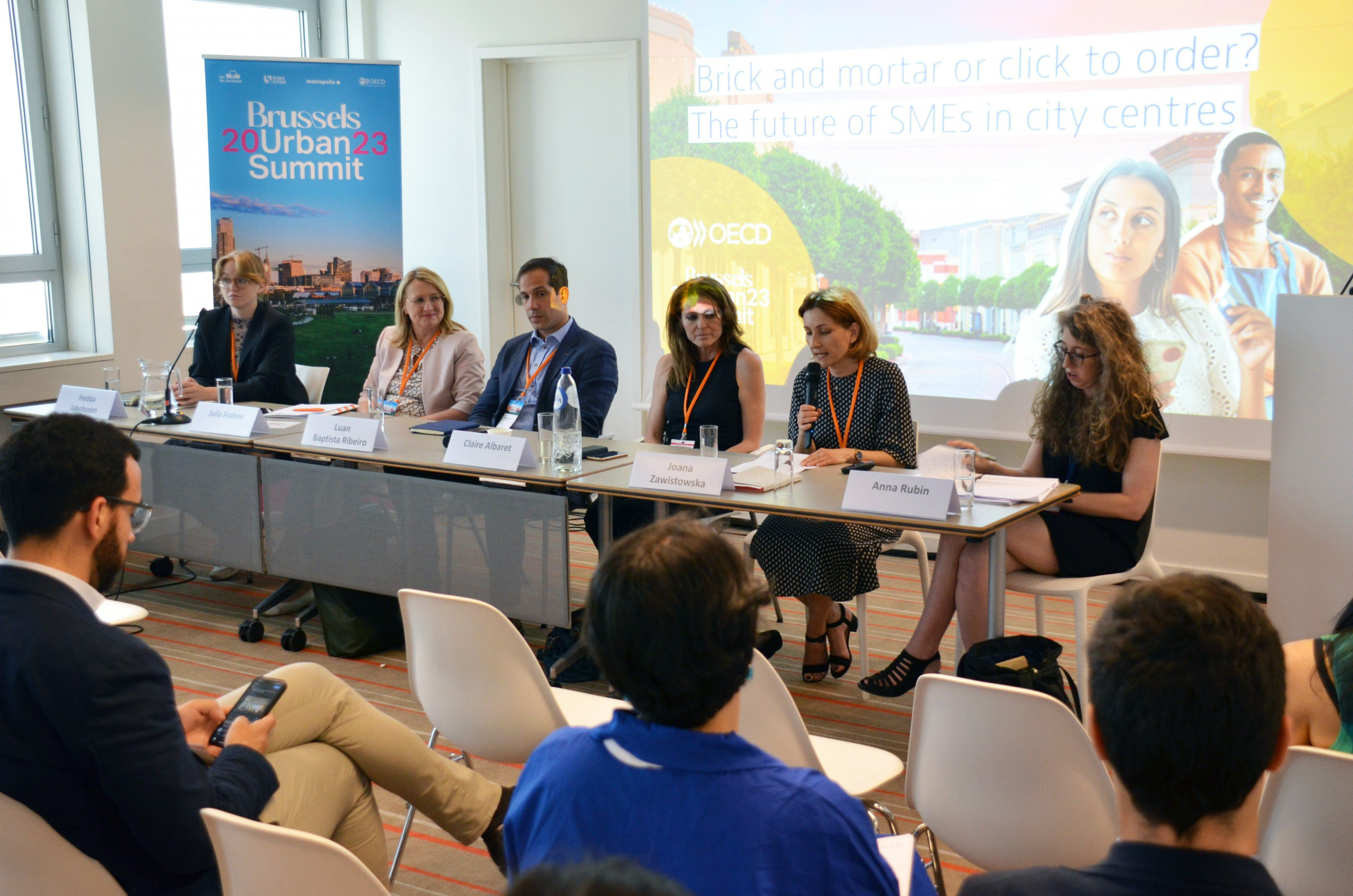The desertification of city centres is not a new phenomenon. Even before the COVID-19 pandemic, experts started exploring possibilities to revitalize city centres and encourage service providers to return to the heart of cities. The workshop organized by the OECD, titled “Brick and mortar or click to order? The future of SMEs in city centres”, included panellists representing experts from different levels, including the European Commission (EC), chambers of commerce, city management associations, and local authorities.
The workshop provided participants with an understanding of the work carried out by the EC to support the revitalization of city centres. Joanna Zawistowska, policy officer for the retail ecosystem of the European Commission, highlighted the actions which were taken at the regional level, such as the ongoing adoption of the petition to establish the European Capital of Small Retail. This initiative aims to raise awareness about the challenges faced by retailers and showcase best practices. Zawistowska also mentioned the lack of appropriate skills, particularly among small retailers, including the need for digital skills to adapt to new realities.
Claire Albaret, Chief Operating Officer at AMCV (City Centre Management Association), echoed the need for retailers to adapt and acquire digital skills. The COVID-19 pandemic and other recent crises have led to changes in spending habits and consumption patterns, as well as a reduction in the consumer base. However, the post-COVID reality has shown a decrease in vacancy rates in city centres. The appearance of new retailers seems to be the reason behind this change. These retailers have a fresh vision and are often actively involved in the local community. They are aware of global trends and priorities and are highly educated experts in the field, bringing a new approach to small retail and making a significant impact.
The participants of the session also learned about the developments in the Ruhr Metropole. Julia Frohne, the Chairwoman of the Management Board of Business Metropole Ruhr, showcased the organization’s activities to support local businesses and promote mixed-use services. One of the challenges they face is the abundance of strict regulations in cities.
Hedda Jakobsson, the policy strategist of the Stockholm Chamber of Commerce, presented the success story of the summer street initiative in Stockholm. This initiative, first implemented in 2015, transformed two streets into pedestrian zones during the summer, providing businesses with more space to conduct activities.
Luan Baptista Ribeiro, the Climate Partnership Manager from the London Borough of Sutton, explained the Green Enterprise Partnership initiated by the London Borough of Sutton. This partnership allows businesses to save up to 70% on taxes.
Bringing SMEs back to city centres is closely linked to the revitalization of these areas. While SMEs face numerous challenges, including e-commerce, a shrinking customer base, labour shortages, and inflation, local authorities and supporting entities can create a more appealing environment in city centres to attract citizens.

